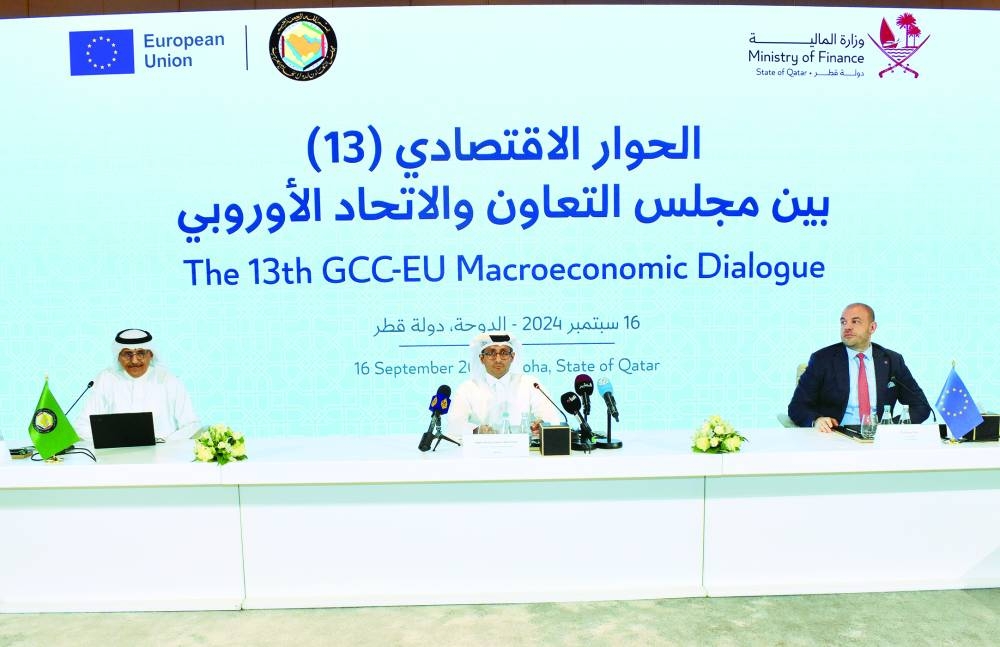Qatar on Monday hosted the 13th Gulf Co-operation Council (GCC)-European Union (EU) macroeconomic roundtable, as it pitched for efforts to explore opportunities to strengthen co-operation in vital areas such as trade, investment, sustainable energy and comprehensive development in order to enhance growth in both the regions.
The meeting – chaired by Assistant Undersecretary for Economic Affairs at the Ministry of Finance Dr Saud bin Abdullah al-Attiyah, and the GCC Assistant Secretary-General for Political Affairs and Negotiations Dr Abdulaziz Aluwaisheg – discussed key economic challenges, policy priorities, and regional and international risks related to security and stability.
The EU side was chaired by Director of International Economic and Financial Relations and Global Governance (ECFIN), Annika Eriksgard.
Al-Attiyah hailed the dialogue as an important platform for enhancing co-operation and partnership between the two sides in facing common economic challenges and working to achieve joint growth and prosperity.
Affirming Doha’s readiness to contribute to global efforts to resolve the Russian-Ukrainian crisis peacefully, he said Qatar provided significant financial and humanitarian assistance, including a pledge of $100mn to rehabilitate infrastructure and provide educational and health services, in addition to scholarships and support for grain export initiatives. “We (also) cannot ignore the ongoing war in Gaza because Palestine is a central cause for us in this region and the world,” al-Attiyah said, reiterating Qatar’s firm position in support of the Palestinian people and the resolution in accordance with international legitimate resolutions and within the framework of the Arab Peace Initiative.
“The role of the Qatari diplomacy is working towards putting an end to the war immediately and exchanging prisoners and hostages and increasing humanitarian aid and opening new avenues for economic development and work opportunities, which is in line with the GCC’s vision and the EU and its long-term partnership with the GCC has for a long time exerted effort to achieve these goals,” according to him.
Doha is one of the countries that has maintained its economic growth, despite the existing challenges, and also has a major role in seeking to reach a solution to the war in Gaza, and thus reduce its economic effects on the region, Aluwaisheg said, highlighting that the series of dialogues date back to 2003.
Dr Cristian Tudor, ambassador of the EU to Qatar, said these dialogues promote strategic relations between the EU and the GCC states, and enhance co-operation.
He said the first summit at the leaders’ level between Qatar and the EU due in October in Brussels under the presidency of Qatar, would lead to a new era, especially with the EU’s keenness to bolster bilateral relations.

From left: GCC Assistant Secretary-General for Political Affairs and Negotiations Dr Abdulaziz Aluwaisheg; Assistant Undersecretary for Economic Affairs at the Ministry of Finance Dr Saud bin Abdullah al-Attiyah; and Dr Cristian Tudor, ambassador of the EU to Qatar, at the 13th GCC-EU macroeconomic roundtable. PICTURE: Thajudheen

